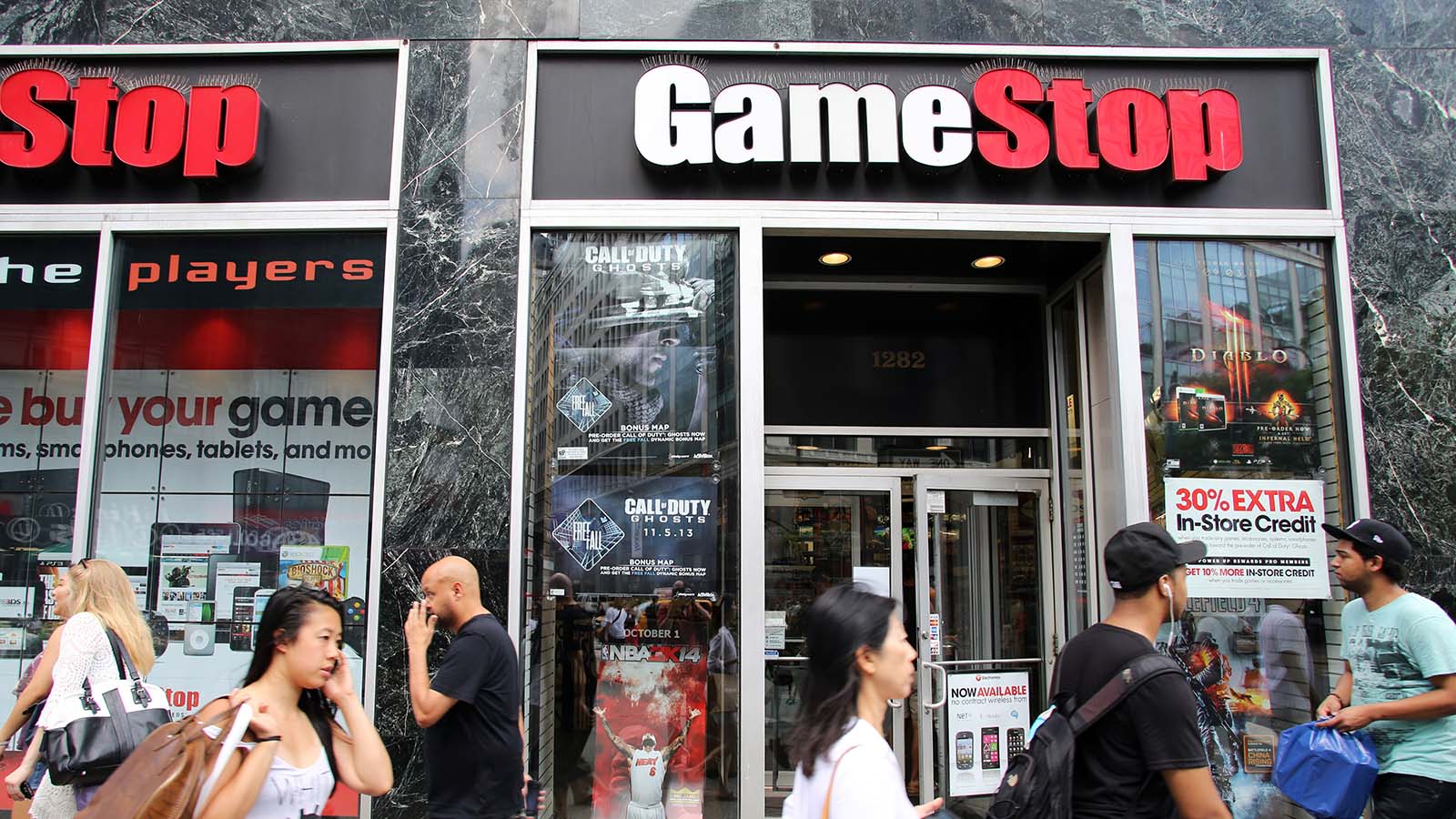A number of new positive catalysts have been added to the mix for GameStop (NYSE:GME). However, despite the potential for a boost, GME stock remains extremely overvalued.

The biggest factor in GameStop’s future is Netflix’s (NASDAQ:NFLX) reported entry into the video game sector. Many investors viewed this as a negative development — shares dropped as much as 7.5%.
Other factors, such as a large pile of cash, may come into play. However, GME stock is also likely to be hurt by a future downturn in meme stocks.
Nevertheless, it’s worth taking a look at the company’s new drivers that can eventually boost its shares.
Netflix’s Move Can Enlarge the Video Game Market
If you’re familiar with my often-contrarian views, you won’t be surprised that I believe GME stock could benefit if Netflix enters the video game market.
I think such a move from Netflix could greatly increase the popularity of video games. At this time, the genre has a fairly niche audience — nearly 60% of U.S. gamers are 34 years old or younger.
By launching a video game platform, Netflix could inspire older Americans to start exploring the genre. Some might even become avid gamers and eventually boost GameStop’s sales.
In other words, just as Amazon’s (NASDAQ:AMZN) popularity helped the stratospheric rise of other companies’ e-commerce businesses, Netflix could boost interest in GameStop’s offerings. As a result, the company’s financial results and GME stock would get a meaningful lift from this development.
Netflix and GameStop Could Become “Frenemies”
I will not be surprised if Netflix partners with GameStop to promote its new video game service.
For skeptics who believe that competitors can never be “frenemies,” take a look at the mobile phone sector. By selling smartphones, the retailers compete with the telecom companies. But to provide cellular service to their customers, the retailers also have to partner with the telecom companies.
For example, Best Buy (NYSE:BBY), Walmart (NYSE:WMT) and other retailers both compete and partner with AT&T (NYSE:T), Verizon (NYSE:VZ) and T-Mobile (NASDAQ:TMUS).
Additionally, Apple (NASDAQ:AAPL) advertises on Alphabet’s (NASDAQ:GOOG, NASDAQ:GOOGL) Google search engine even though Google’s Android phones compete with Apple’s iPhones.
And although Netflix does not plan to charge an extra fee for its video game service, I think it will ultimately force users to pay for it. And in this scenario, there are multiple avenues Netflix could pursue to gain customers with a paid GameStop partnership.
GME Stock Is Swimming in Cash
In his July 19 article, InvestorPlace contributor Mark R. Hake reported that, after raising $1.13 billion by selling GME stock, the retailer has $1.897 billion in cash before expenses.
I disagree with Hake’s conclusion that GameStop’s shares are unlikely to drop a great deal after it raised that cash. I do, however, concur with his belief that the retailer “is not going to wither away.”
What’s more, that cash will enable GameStop to create a truly first-class e-commerce operation and launch a highly effective marketing campaign. That could make or break the company as it seeks to compete with other online gaming retailers.
Valuation and the Bottom Line on GME Stock
Best Buy is a highly profitable electronics retailer with a strong e-commerce business. On average, its 2022 sales are expected to be roughly nine times those of GameStop. Yet even after the recent pullback in GME stock, GameStop’s market capitalization is almost 50% of Best Buy’s.
Additionally, as I’ve pointed out in recent columns, meme stocks are tumbling and I don’t expect that trend to ease anytime soon.
Given all of these points, I recommend that investors sell GME stock. Depending on the circumstances of the company, the stock market and the economy, growth investors may be well-served by buying a small number of shares in the $50 to $70 range.
On the date of publication, Larry Ramer did not have (either directly or indirectly) any positions in the securities mentioned in this article.
Larry Ramer has conducted research and written articles on U.S. stocks for 13 years. He has been employed by The Fly and Israel’s largest business newspaper, Globes. Larry began writing columns for InvestorPlace in 2015. Among his highly successful, contrarian picks have been GE, solar stocks, and Snap. You can reach him on StockTwits at @larryramer.
